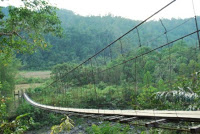
Natural Justice published an article in the ECO, the CBD Alliance’s bulletin, entitled, “ABS+”. In the article, we argue that whether ABS delivers environmental and social benefits (ABS+) is contingent on how it is used by individual communities living within diverse ecosystems. Thus, the implementation of ABS must be responsive to local communities and the ecosystems in which they live. The article concludes: “If the subject of ABS is genetic resources and associated TK, then ‘sustainable ABS’ is incumbent upon communities’ abilities to sustain their knowledge, innovations and practices (Article 8(j)) through their continued customary uses of natural resources (Article 10(c)). Whether ABS can assist communities to do so is to ask what ABS can contribute to communities whose ways of life are commensurate with the objectives of the CBD. A clue to that answer lies in the extent to which national governments support and respect communities’ rights to manage their own natural resources and to engage with ABS according to the principle of free, prior and informed consent. In this context, and with reference to a recent article about land tenure and REDD by Lorenzo Cotula, we ask: will ABS be implemented with communities as a starting point or as an afterthought?” The full article can be read on the CBD Alliance homepage.
